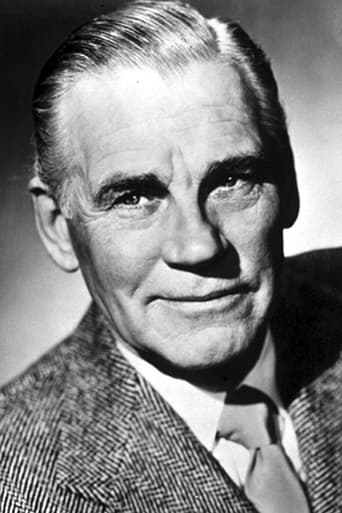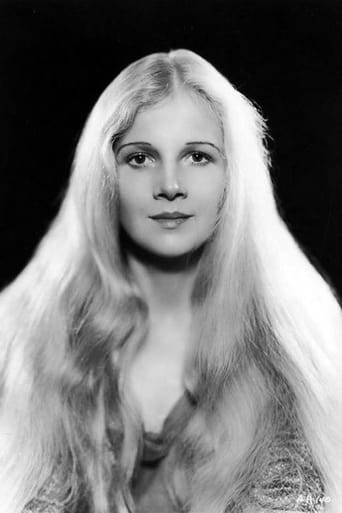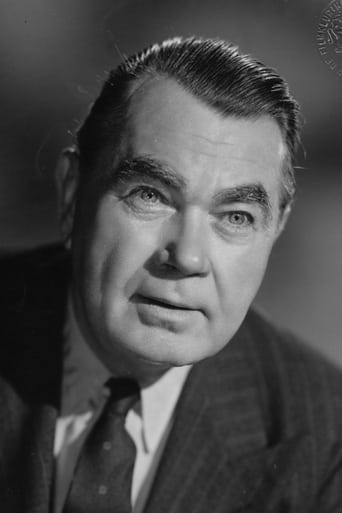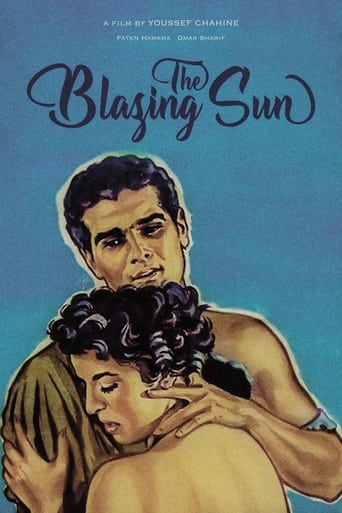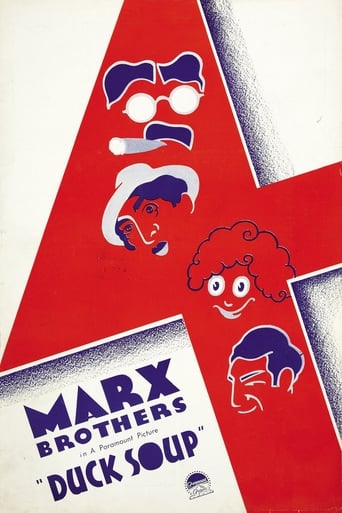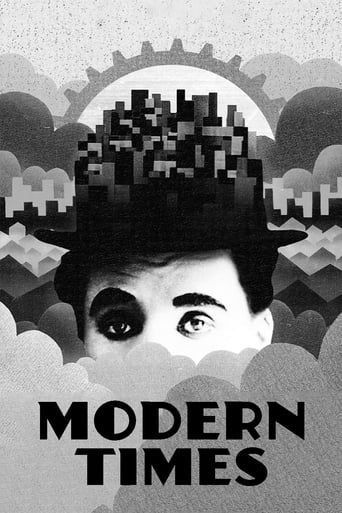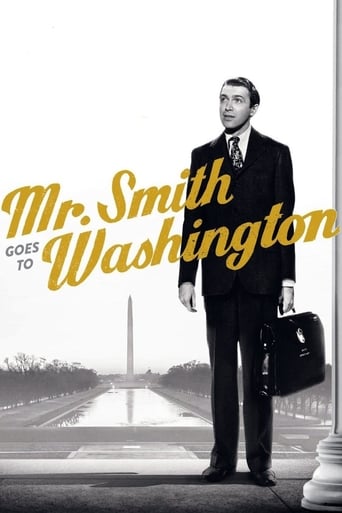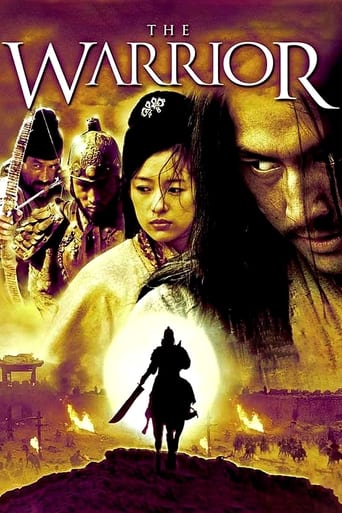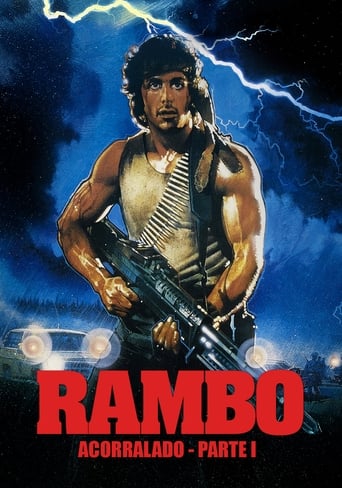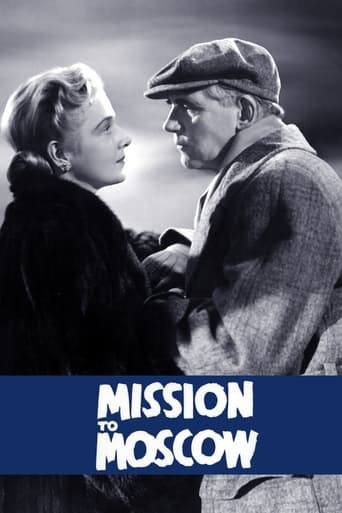
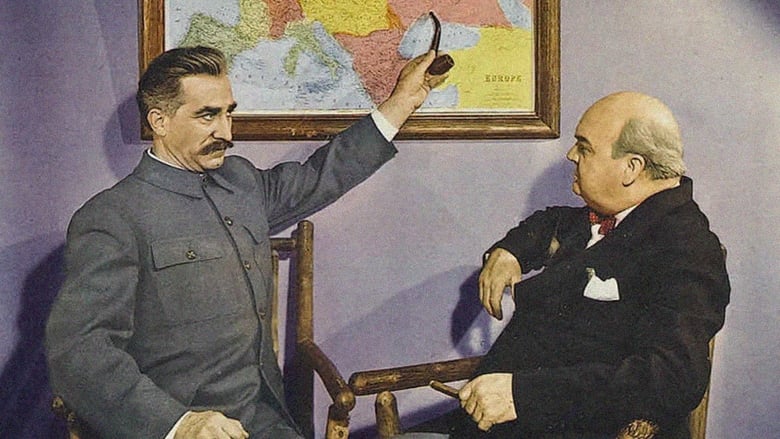
Mission to Moscow (1943)
Ambassador Joseph Davies is sent by FDR to Russia to learn about the Soviet system and returns to America as an advocate of Stalinism.
Watch Trailer
Cast


Similar titles
Reviews
Perfect cast and a good story
Beautiful, moving film.
Awesome Movie
Am i the only one who thinks........Average?
What nation in history conducted a propaganda campaign to glorify another nation that it would then spend hundreds of billions of dollars to defend itself against? Or that would spend more than $5 trillion in a nuclear arms race? To those reading this review, the answer is obvious. The U.S. is the only country ever to produce so much propaganda in support of another nation that would soon oppose it. And, that's one of the unique things about this film. "Mission to Moscow" was the first of several Hollywood films to portray Soviet Russia as our good neighbor. The second thing about the film is that it was a sham.This isn't to knock propaganda, which has been used forever. For a good discussion of propaganda and its use, see the review by jacksflicks from Hollywood on April 6, 2004. The performances and film qualities of this movie are okay, but nothing special. It has a cast of prominent actors, as do most of the films that followed. But, why was a major propaganda effort launched then? Warner Brothers made this film at the behest of Pres. Franklin D. Roosevelt. He wanted a movie made from the book by his former ambassador, Walter Davies. That book glamorized the Soviet Union in 1938. But it was a lie, and FDR knew it. Davies supervised the script and everything about the film. The War Department then prevailed on other Hollywood studios to make pro- Soviet movies. After "Mission to Moscow" came out on April 28, 1943, a string of films followed. Columbia released "The Boy from Stalingrad" on May 20 of that year. Samuel Goldwyn and RKO Pictures put out "The North Star" on Nov. 4. The U.S. War Department made a full-length documentary on Nov. 11 that was filmed by a U.S. Army unit in Russia. Three more full-length Hollywood films followed in 1944: "Three Russian Girls" by United Artists on Jan. 14, "Song of Russia" by MGM on February 10, and "Days of Glory" by RKO on June 16, 1944.Most of these films are just fair. But they are unlike any of the other war films being made about resistance fighters and underground forces in other countries. These clearly are propaganda films. But why were they being made by the U.S. to promote another country way into the war? We no longer needed to build American support for Russia, or to urge the Soviets to enter the war on our side. We already had both.Russia was in the war since Germany invaded it on June 22, 1941. It now made the second front that the Allies wanted. England had been sending armaments and supplies to Russia. And, the Russians had stalled the Germans since Aug. 23, 1942, and then defeated them in the Battle of Stalingrad on Feb. 2, 1943. The Allies were winning elsewhere. Germany had lost the Battle of Britain in 1940, and it was fast losing the air war everywhere. The Allies had been bombing Berlin since 1940. They defeated the Germans at the Second Battle of El Alamein on Nov. 11, 1942, and German surrender in Africa would come on May 13, 1943. That was just nine days before this film was released. So, there clearly was no need for a new propaganda push by the U.S. in support of Soviet Russia. Unless there were other reasons FDR wanted Americans to have friendly feelings toward the Soviets? Because, once Germany was defeated, public concern would then turn its gaze on communism. So, if Americans would not be wary of Russia, there probably wouldn't be much concern about Europe after the war. Germany, of course, being the exception. Well, that's how it turned out. Winston Churchill coined the phrase "Iron Curtain" for the Soviet domination of Eastern Europe. That was in a speech he gave on March 5, 1946, at Westminster College in Fulton, Missouri. Churchill had been a strong advocate for the freedom of eastern Europe after the war, especially Poland. Some 200,000 Polish soldiers were serving under the British Army. The Yalta Conference of February 4-11, 1945, was to determine the fate of Europe after the war. It was supposed to give self-determination to the people liberated from Nazi Europe. FDR, Churchill and Stalin all agreed to this.But FDR granted concessions to the Soviets, and Churchill went along. Stalin put in place communist governments in all of Eastern Europe. Poland, Czechoslovakia, Hungary, Yugoslavia, the Baltic States and others would now be part of the Soviet Union, along with East Germany. Stalin hoodwinked the Allies and they didn't lift a finger to stop him. The Allies gave the shaft to the people of Eastern Europe. Was Gen. George Patton right after all – about the Soviets?Many in England saw this as a betrayal of Poland. It likely contributed to Churchill's election loss at war's end. At the Potsdam Conference in July, the Soviets denied that they were interfering in the affairs of Romania, Bulgaria and Hungary. And that was that. Back in the U.S., little care was paid to the fate of the Eastern Europeans. After all, everyone knew how good, decent and trustworthy the Soviets were. We had seen it in all these films and our government, Hollywood and the news media wouldn't lie to us, would they?Just think! If all those countries freely had been able to set up their own governments, the Soviet Union would have been much less powerful. It would have many more countries to face. Maybe there wouldn't have been a Cold War at all. Maybe not a nuclear arms race. Would the world have been better if America's leaders, Hollywood and the news media had supported the truth instead of lies? Many thousands of murdered Eastern Europeans and millions who were oppressed for half a century would probably think so.
This Obvious Whitewash of Russia for Propaganda Purpose Picture was basically Commissioned by FDR. He wanted Warner Brothers to Film Ambassador Joseph E. Davies Book to Brain-Blast Americans to Lighten Up on Russia because We Needed Them in the Fight Against Fascism.America had to View Them as an "Enemy of Our Enemy" and Ignore Stalin's Atrocities, at Least for Now.To Say that Director Michael Curtiz and Screenwriter Harold Koch Delivered is to Say that They Delivered a Movie so Over the Top and Sensational is to Understate the Overstatement.The Film Ended Up being so Fawning and Fatuous that its Original Intent was Overshadowed by its Inability to See just how Ridiculous the whole Thing turned out.Nonetheless it was Released and for the Uninformed, Unaware, and Uneducated Folks of America it might have Convinced a Few that an Alliance with a Brutal Dictator was Necessary and would Save Countless American Lives by the End of the War.After the War, the Overreaction to the Soviets was just as Bad as this Overreaction during the War. It Resulted in the McCarthy Witch Hunts and a Cold War with the Soviets that Lasted a Very Long Time, and an Arms Race that Proliferated the World with Thousands of Nuclear Warheads on Both Sides.This Movie, in Retrospect, really wasn't Needed in 1943 and Making it and Releasing it was a Mistake with the Benefit of Hindsight.But, it is Worth a Watch for it was Made and it was Released during a Time when the Politicians of America and the Movie Makers of America were not Thinking Straight and is a Good Example of the "Fog of War".President Roosevelt, Warner Brothers, and Yes, Ambassador Davies should be Forgiven, because Their Intentions were Pro-American and Not Pro-Soviet, although when Viewed Today it Seems that way.
Valentine to the Soviet Union, made at the only possible moment it could have been made, at the behest of FDR and with the full resources of Warners. And it looks mighty strange today, seeking to convince wartime audiences that despite capitalism-vs.-communism arguments, the Soviets are an honorable and charming people, Stalin's a good guy with more in common with the U.S. than you'd expect, and the Russians saw what a threat Hitler was long before anybody else did. It's told through U.S. Ambassador Joseph Davies' eyes; Davies himself introduces the picture, then is replaced by an earnest Walter Huston, who manages to retain his dignity and even some gravitas, even through myriad scenes of him meeting politicos, shaking hands, and making pronouncements. But mostly it's about how the Soviets' military power is stronger than suspected, and there are lots of (well-faked) parades, parades, parades. It's sad to see the great Ann Harding in such an uninteresting, wifey role as Davies' Mrs., and Eleanor Parker has almost nothing to do as their daughter but admire the traditional Russian skating and dancing. The music is Max Steiner at his most obvious, and director Michael Curtiz is in no hurry to get to the end. Interesting now as what well-deployed propaganda looked like in 1943, and the New York Times, among others, quite liked it. But it's a slog, and it looks pretty naive now.
Extremely pro-Stalin & Soviet Union movie made in Hollywood at the very hight of WWII when Germany was on the verge, during the battle of Stalingrad, of knocking the USSR out of the war. Based on the book "Mission to Moscow" by the former US Soviet Ambassador Joseph E.Davies, who in fact introduces the film, were shown how the Soviet Union under the leadership of Premier Joseph Stalin was the envy of the free world in it's heroic struggle against Nazi Germany. It was the Soviet Red Army who that during the course of the war lost an estimated 9 million of its fighting man and women battling Nazi Germany.Given the job as Ambassador to the Soviet Union in 1937 by Pres. Roosevelt, Jack Young, Davies, Walter Huston, is given the assignment to check out what's going on in that country and report back to the president if it will be a reliable ally if a future conflict between Britian & France that breaks out with Nazi Germany. In what seems like no time at all Davies develops a love affair with the USSR and it's ruthless dictator Joseph or "Uncle Joe" as President Roosevelt calls him the Man of Steel himself Joseph V. Stalin played by the kind sweet and fatherly looking Mamart Kipper. The what seems like very naive Davies,who should have known better,is completely blown away by Uncle Joe's "great" accomplishments. That's in him bringing the backward and 19th century Russia into the 20th century with his series of 5 year economic plans. Plans not originated by "Uncle Joe" but his late boss and first leader of the Soviet Union Nickolai 'Nicky" Lennin.Even though very pro-Stalin the movie surprisingly doesn't skip over the notorious 1937/38 purge trials conducted by Stailn's henchmen in the Soviet Ministry of Justice and the dreaded NKVD. It was at those trials that the almost entire Soviet diplomatic and Red Army office corps were convicted and executed for treason. They were all accused in them planning with the exiled and deposed, by Stalin, Leon Trotsky, Sam Goldenberg, with the Hitler's Germany and Imperial Japan of trying to undermined and overthrow the Stalin regime. As It turned it wasn't treason that they were guilty of but Stalin's hysterical paranoia of feeling threatened by anyone close to him trying to throw him out of power!The movie goes on making excuse after excuse for Stalin's crimes,like the invasions of Poland Finland and the Baltic States,in that they were needed to get his country ready for the coming invasion by Hitler's Germany which he was certain was soon to come. Yet when the Nazi invasion finally came in June 1941 Stalin's well prepared for it Red Army was caught flat-footed having the German Army reach the very gates of Moscow before the year was out. Davies now back in the US and a private citizen does his best to get the American people, who at the time was very isolationist, ready to both supply the Soviet Union with military hardware as well as join it in it's battle against Germany. But as fate would have it it was japan's sneak attack on Pearl Harbor, six months after Hitler invaded the USSR, that did the trick for both him and President Roosevelt. It was Pres.Roosevelt who's behind the scenes actions was doing everything to incite a German U-Boat attack on US shipping in order to get the US into the war. What was so ironic about that is that it was Hitler's Germany who did everything possible to avoid a conflict with the USA, even having his U-boats not return fire after being fired upon by the US Navy, not the US that was the first to declare war!Despite the Soviet Union being an ally of the US at the time of the films release it in fact bombed at the box office not even making back half of the 1.5 million dollars it took to produce it. when shown to Russian audiences in Moscow people watching it, in them knowing what a horror "Uncle Joe" Stalin really was, could't refrain from laughing out load when ever Davies showed his enthusiasm for the Stalin regime as well as "Uncle Joe" himself! Even if it meant a one way ticket to a Siberian gulag or Soviet firing squad if they were ever identified,with the lights in the theater turned on, of showing disrespect to "Uncle Joe" and his "great" accomplishments for the Russian people!P.S No matter how ridicules and historically inaccurate,in covering up Stalin's crimes, the film "Mission to Moscow" is the one thing it got right is that without the help of the USSR the US and its western allies would have never won the war against Nazi Germany. According to official German casualty statistics the German military lost an astounding 2,400,000 killed and missing together with almost 3,500,000 wounded in the fighting on the Eastern or Russian front alone! And that's only up to November 30, 1944 when the German military stopped keeping casualties statistics! That's without even counting the enormous losses that the German army suffered fighting against the Red Army from December 1944 to the end of the war in May 1945! Those tremendous losses of manpower as well as military equipment against the Soviet Union would have fully equipped and manned as much as 400 Nazi infantry and armored divisions! A German army of almost 6 million strong which could have been thrown against the US Britain and their allies in not only North Africa and Italy but in the savage and bloody battles of Western Europe in 1944/5 which would have well turned the tied of battle in Hitler's favor! In fact there would have been no possibility of a Western Front without an Eastern Front tying down as much as 80% of the German Army needed to engage the advancing some 8 to 10 million strong Red Army!


